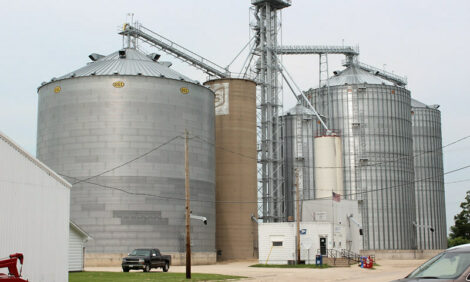



Irish Farmers Call for More Support for Suckler Cow Herd
IRELAND - Speaking at the Newford suckler herd Open Day in Teagasc, Irish Farmers' Association (IFA) President Joe Healy said increased targeted direct supports will be essential to maintain the quality suckler cow herd, which is the backbone of Ireland’s €2.3bn beef and livestock sector.The Newford suckler herd was established by Dawn Meats and Teagasc in 2015, with support from McDonalds, to demonstrate best practice in suckler beef production.
Joe Healy said the €52m Beef Data and Genomics Programme (BDGP) secured by IFA was a positive start in terms of supporting the suckler cow herd.
However, the IFA is proposing that the level of direct support for the suckler cow herd should be increased to €200 per cow, and also that the BDGP should be simplified and the cost to farmers reduced.
IFA National Livestock Chairman Angus Woods said our 1 million head suckler cow herd is vital to the beef and livestock sectors. He added that a study by UCD Professor of Agricultural Economics Alan Renwick shows that each €1 of support invested in the beef sector, underpins over €4 in output in the Irish economy.
In addition, Angus Woods pointed out that 24 of the 27 EU member states have used coupled payments to support their beef and livestock sectors, with the majority of funding focused on suckler cow payments.
Angus Woods said one of the biggest challenges on profitability in the suckler cow herd is the imposition of unfair price penalties by the processors on carcase weights. He said the best bred and most productive beef animals from the suckler herd are being unfairly penalised.
IFA analysis shows that the carcase weight penalties hit the suckler herd hardest, with over 25 per cent of steers and 35 per cent of bulls from suckler bred animals incurring a penalty at over 420kgs. This would cost the Irish beef farmers over €10m in a full year.
The IFA Livestock leader said the factories are using the easy option of applying price penalties on carcase weights, as opposing to using modern cutting methods and technology to find a better solution to heavier carcases from our best and most productive animals.
Mr Woods said: “Processors are using cutting methods from 50 years ago and claiming that they are unable to handle heavier carcases. They need to change and adopt new cutting techniques, which will allow the entire sector to develop and benefit from our more productive genetics.”
TheCattleSite News Desk


